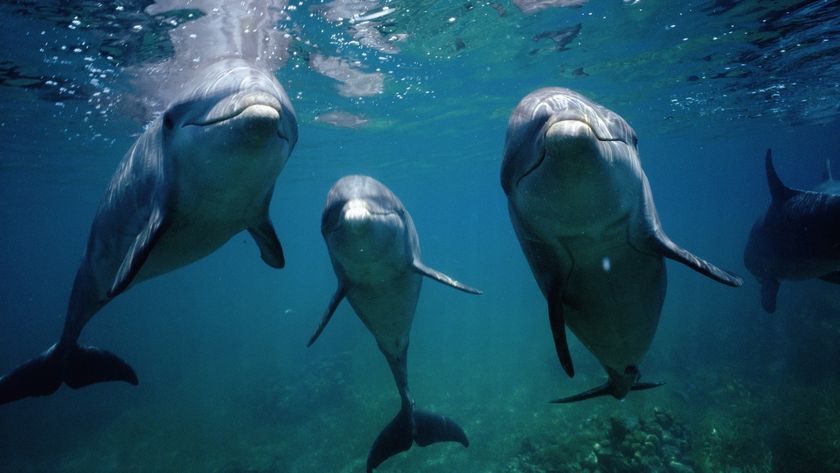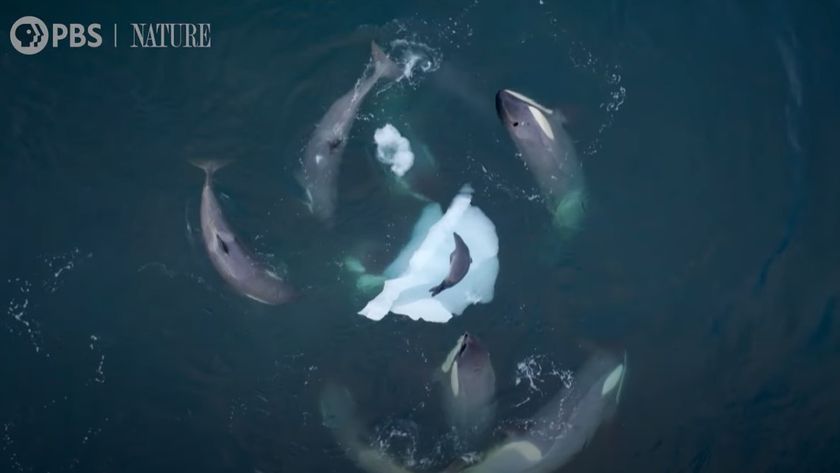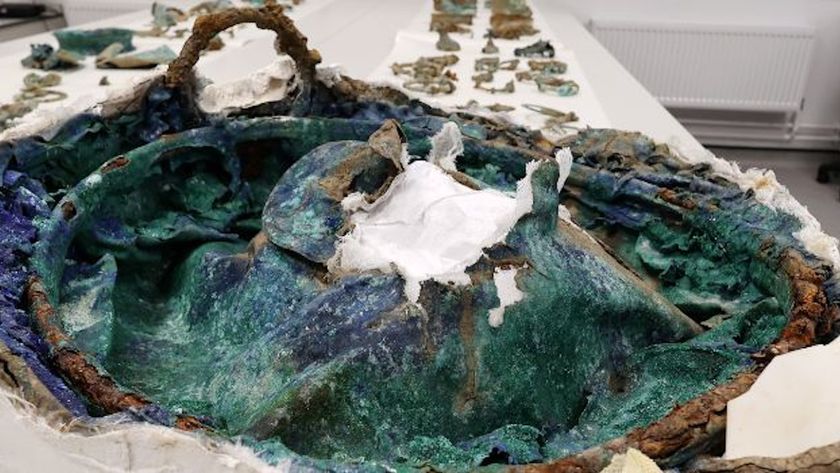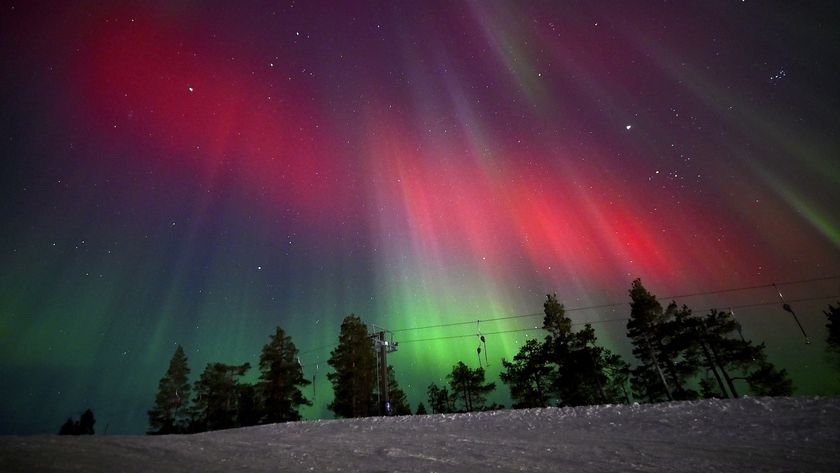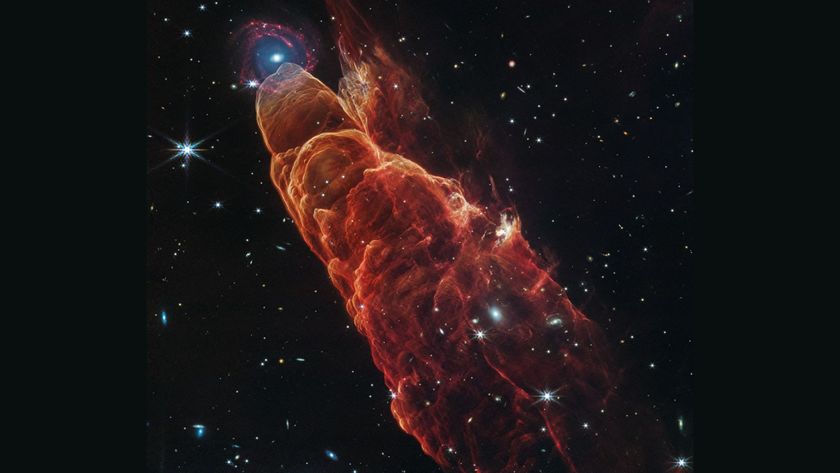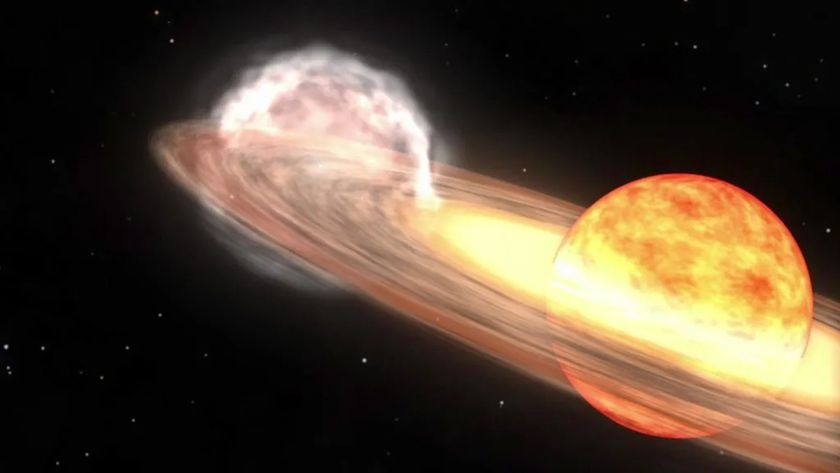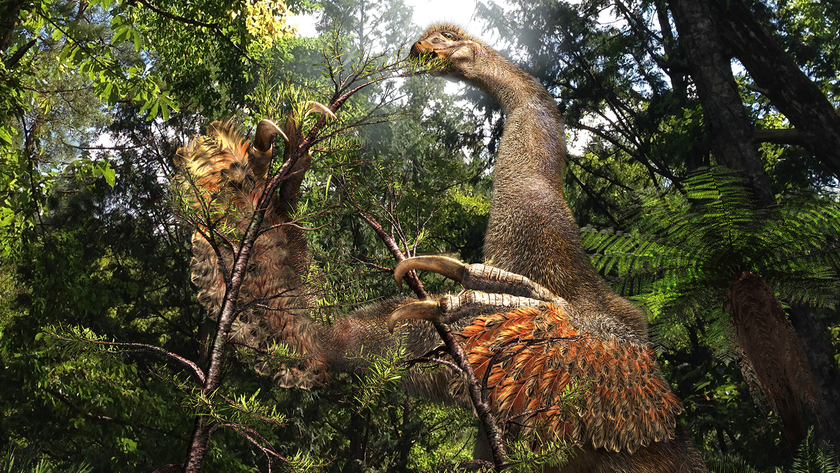Why Are So Many Dolphins Beaching Themselves?
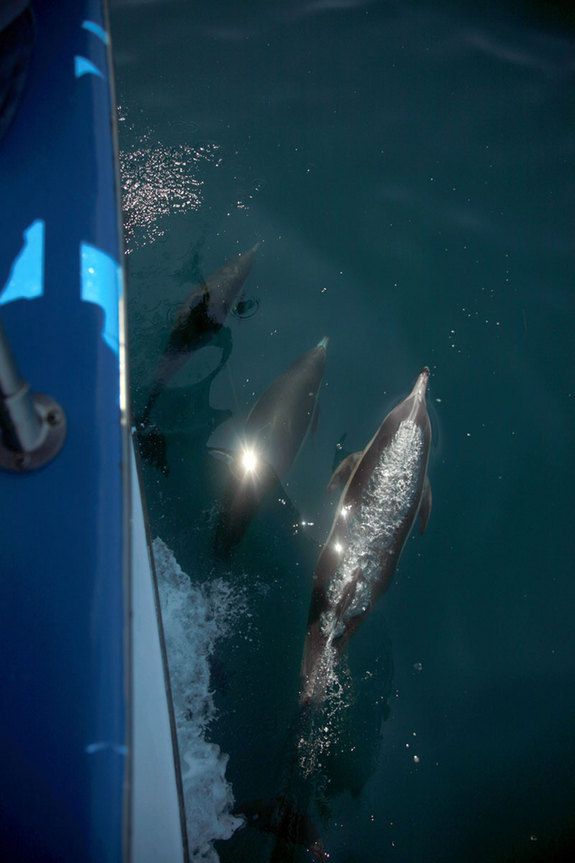
From New England to Peru, an unprecedented number of dolphins have been beaching themselves in recent weeks, and experts are grappling as to why.
On Cape Cod alone, 177 short-beaked common dolphins have stranded and 124 have died, according to an Associated Press report. The report goes on to say that the total is nearly five times the average of 37 common dolphins that have stranded annually there during the last 12 years.
NEWS: Why Do Whales Beach Themselves?
More than 200 dolphins have washed up dead on the beaches of Chiclayo, Peru, according to The Blaze. In that case, dead anchovies were also found. Since these small fish are prey, the dolphins may have become ill as a result of eating them, but the deaths remain a mystery.
The International Fund for Animal Welfare has been handling rescue efforts in Massachusetts. Katie Moore of the IFAW in her blog recently described what it can be like at the scene:
Yesterday we had a young Atlantic white sided dolphin strand alive in Wellfleet. The female appeared to be a calf, probably over a year old. She must have come in on the high tide at about 2:00am - she was as high as she could get on the beach, wedged up against the bulkhead. Our early morning crew must not have been able to see her from above. This young dolphin was emaciated - so thin it was obvious she has been deteriorating for quite a while. She appeared dehydrated, her skin was peeling and cracking. We worked with our volunteers and colleagues from the Riverhead foundation in New York to extract her from the beach. We placed her on a soft foam mat to make her more comfortable while we did a quick exam. Her poor condition was obvious - very low breathing rate, emaciated, unresponsive. She was dying. The most humane thing we could do was to humanely euthanize her. We put her to sleep the same way a vet would do for a beloved pet. She went very quietly. Although it is always hard to put an animal down, we knew it was the kindest thing we could do for this young dolphin.
Moore and other experts have offered the following as possible reasons for the dolphin strandings:
- This year's unusually warm winter. As Discovery News recently reported, the unusually warm temperatures are affecting animal reproductive cycles, hibernation patterns and more. The change could also somehow be impacting dolphins.
- Geography. Moore said the hooked shape of Cape Cod appears to be trapping the dolphins and confusing them. But the question still remains, why are the dolphins going in that direction in the first place?
- Movement of prey. Climate cycles could be altering the course of fish and other dolphin prey, the AP report suggests. Dolphins following the prey could then become stranded. That might help to explain why both sardines and dolphins washed up in Peru.
- Disease. This is an obvious reason, but workers at the IFAW are tagging and taking blood samples of the stranded animals, AP has reported. Researchers have also conducted necropsies on dead dolphins, and yet still there are no clear answers. A Congressional briefing was even held earlier this month in the push to resolve the problem.
- Decompression. I would be curious to know if the dolphins have internal air bubbles that can cause decompression sickness, more commonly known as "the bends" in humans. That might seem far fetched, but scientists have determined that the blood and tissues of some deceased beaked whales stranded near naval sonar exercises are riddled with bubbles.
"Beaked whales are stranding atypically when exposed to sonar," Michael Moore, director of the Woods Hole Oceanographic Institution Marine Mammal Institute, was quoted as saying in a press release. "The beaked whale mortality events have led the current generation of marine mammal physiologists to revisit the question of how marine mammals manage the issue of lung gas being compressed as they dive deeper.
Sign up for the Live Science daily newsletter now
Get the world’s most fascinating discoveries delivered straight to your inbox.
NEWS: Dolphins -- Second-Smartest Animals?
He continued, "Above the depth of alveolar collapse, a depth at which the gas-exchange surface of the lung is no longer inflated, increasing pressure with depth can cause gases to dissolve in the body; the gases then come back out of solution as they resurface. If this decompression is uncontrolled, bubbles can form. In humans such bubbles can cause joint pain that is relieved by 'bending' limb joints - hence the popular name. It was thought that marine mammals were immune to such problems, but the beaked whale cases reopened this assumption to fresh scrutiny."
Unusual weather, however, is likely the main the driving force, even if it is fueling some other secondary problems, such as the emergence of pathogens. We will have to wait and see what additional studies reveal.
A video report showing some of the dolphins and their rescuers may be viewed here.
This article was provided by Discovery News.
